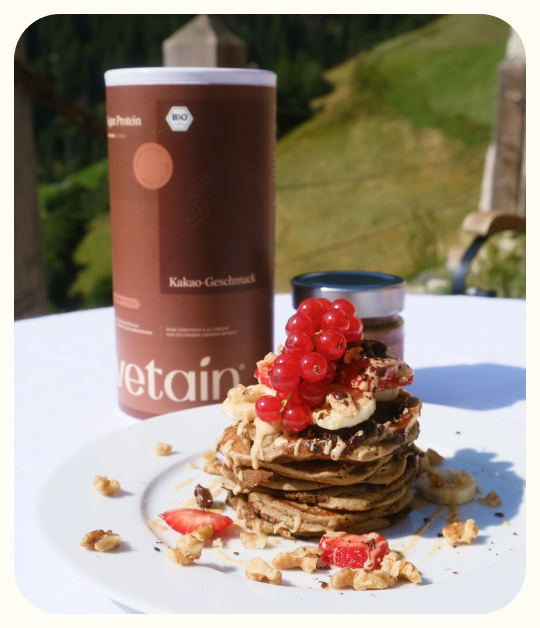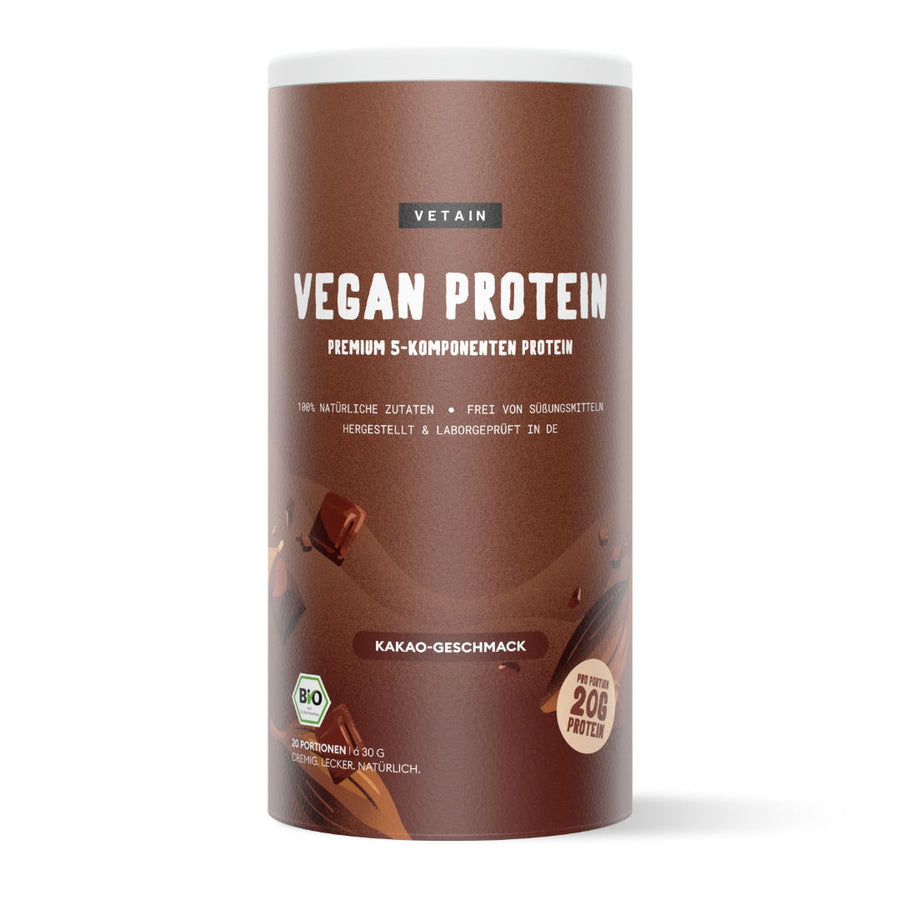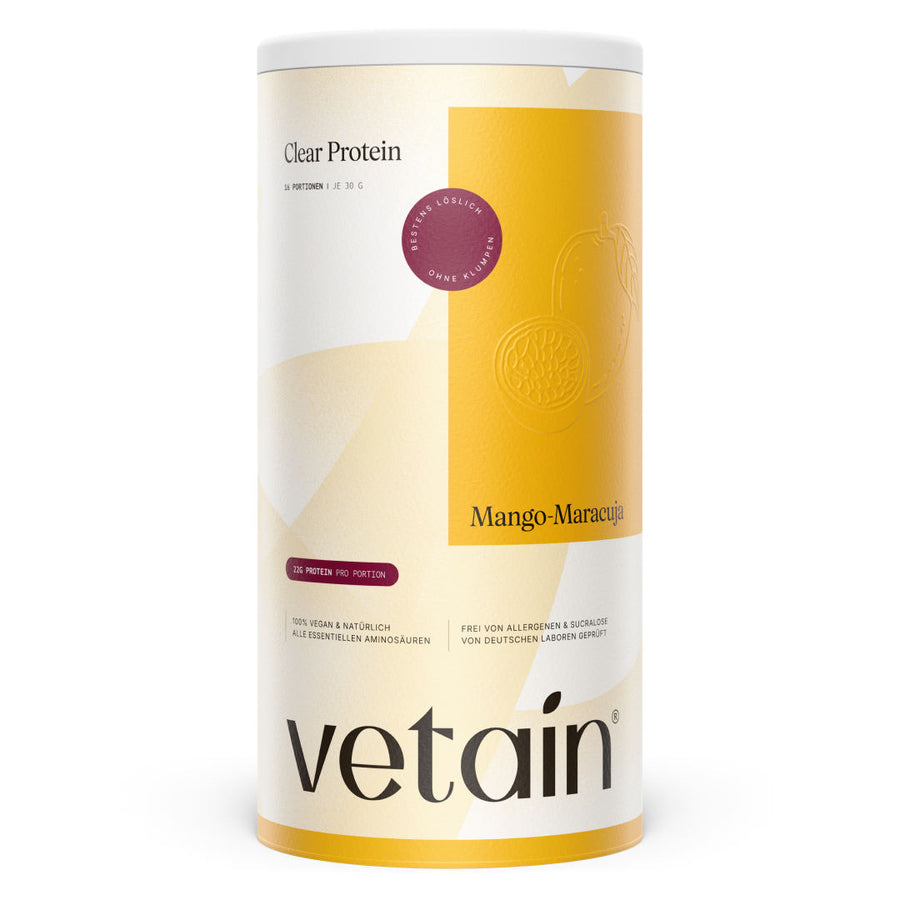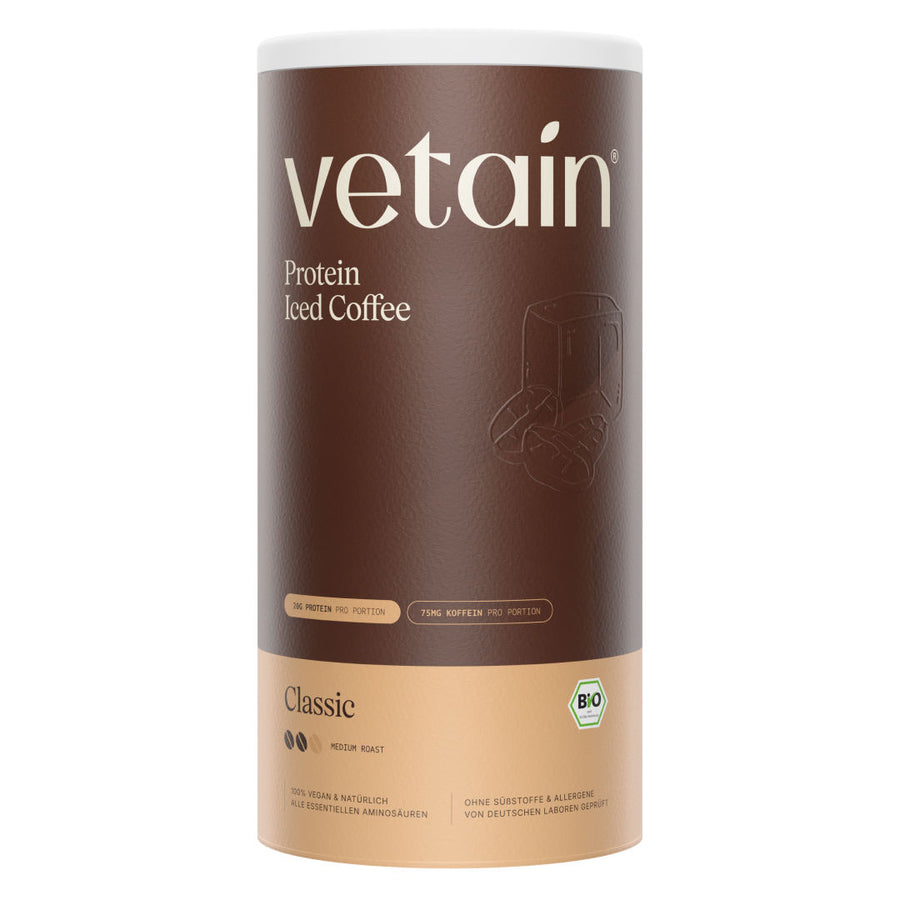You’re standing in a store looking for new supplements. In one hand, a classic whey protein, in the other, a plant-based protein powder. Whey is the well-known classic – bought countless times, proven, reliable. But the vegan alternative tempts with a long list of supposed benefits: more sustainable, easy to digest, and now just as effective?! No wonder more and more people are switching to such alternatives. But what’s really behind it? Is plant-based protein better than the traditional one? Or is it just hype?
What’s the difference? Plant vs. animal protein compared
First of all: Whether animal or plant protein is better can’t be said with 100% certainty – and that’s not what we want either. Both have advantages and disadvantages, both have their place, and in the end, the best product for you is the one that works for you, tastes good, or that you tolerate best.
What is plant protein?
Protein is not just protein – you’ll notice this at the latest when deciding between animal and plant-based sources. Both have their place in nutrition, but they differ in some important ways. Animal protein, such as whey or casein, which mainly comes from dairy products, eggs, or meat, naturally contains all essential amino acids in an optimal ratio. No wonder it has long been considered the gold standard. Speaking of dairy: for people with lactose intolerance, plant protein is often easier to digest since it’s sourced differently.
The most well-known include:
Legumes – e.g., peas, lentils, beans, and soy
Grains & pseudocereals – oats, quinoa, rice, or amaranth
Seeds & nuts – hemp seeds, chia seeds, almonds, or sunflower seeds
They also provide valuable proteins along with other benefits. But does that mean plant protein is better? Or can it just about keep up? Let’s take a closer look.
Nutrient profile – plant proteins have more to offer
While animal protein like whey or casein primarily delivers pure protein, plant sources come with a whole package of additional nutrients – a real plus for a balanced diet.
Fiber
Vitamins & minerals – depending on the source, e.g., iron, magnesium, or antioxidants
Fats – especially in hemp or chia protein, they provide valuable omega-3 fatty acids
When it comes to saturated fats and cholesterol, plant protein is often better since it contains less than animal products. This makes it interesting not only for athletes but also for anyone who wants to eat more consciously or needs to watch these values.
Biological value – is plant protein at a disadvantage?
To judge whether plant protein is better or not, we should also look at biological value. It indicates how efficiently the body can use a protein. The more similar the amino acid profile is to our body’s own protein, the better it can be used for body functions. Animal proteins naturally have an advantage here. They contain all nine essential amino acids in optimal ratios – that’s why they’re called “complete proteins.” This means they can be absorbed and converted into body protein particularly well.
Many plant alternatives also contain essential amino acids, but not always in the amounts or combinations the body can use optimally. Some are naturally low in certain amino acids, such as rice protein, which is low in lysine, or pea protein, which has less methionine. But that doesn’t mean plant protein is inferior! Through smart combinations, the biological value can be optimized. A good example is mixing rice and pea protein – they complement each other perfectly and reach a biological value comparable to whey.
%-split_content-%
So the takeaway: With plant protein, you can also optimally supply your body – you just need to know how.
Plant protein & muscle building
When it comes to muscle building, many first think of quark, eggs, tuna, and chicken – what muscles could a pea possibly build? Muscles grow with sufficient protein intake combined with the right training. Where the protein comes from is secondary, as long as the amount and composition are right. Plant protein sources have a key advantage: They not only provide protein but also valuable micronutrients! A varied diet automatically includes different plant protein sources that complement each other. This ensures a high-quality supply of all essential amino acids – exactly what’s needed for muscle building. And anyway, plant protein is better than none at all, since building requires building blocks.
Another point is digestibility. Many people are sensitive to dairy products, which can cause digestive issues with whey protein. Plant variants such as pea, rice, or hemp protein are often perceived as easier to digest. This makes them interesting not only for vegans but for anyone looking for a more tolerable alternative. Ultimately, the overall balance counts: those who get enough protein, train regularly, and allow their body enough recovery will make progress – regardless of whether plant or animal protein is used.
Sustainability – a clear plus for plant alternatives
Beyond health and nutritional aspects, the environment plays an increasingly important role in choosing the right product. When it comes to eco-friendliness, plant protein clearly has the edge. Producing animal protein, especially from dairy products like whey, requires enormous resources. Cows need large areas for feed crops, consume lots of water, and generate significant CO₂ emissions. In comparison, producing plant alternatives is much more environmentally friendly. Legumes like peas or soy require less water, less land, and cause far fewer greenhouse gas emissions.
Another factor is more sustainable agriculture. While large amounts of feed crops must be grown for livestock – often on land gained through deforestation – plant proteins can be consumed directly from the source. This makes the process not only more eco-friendly but also more resource-efficient. So if you care about your health and the environment, plant protein is a more sustainable option. It reduces the ecological footprint and helps conserve valuable resources – without compromising on protein intake.
Conclusion: In terms of environmental impact, plant protein is better than many animal alternatives.
Myth: Plant protein doesn’t fill you up
A common prejudice is that plant protein is less filling than animal protein. But that’s not true – quite the opposite. The reason lies in the composition. While whey or casein consist almost exclusively of protein, plant products often contain fiber and complex carbohydrates. These lead to slower digestion and a more even release of energy.
In addition, the type of protein intake also influences satiety. Vegan protein sources like legumes, quinoa, or oats provide not only protein but also a broad spectrum of nutrients, signaling to the body that it’s well supplied. The prejudice that it doesn’t fill you up probably comes from the fact that it often has a slightly different texture than whey and doesn’t feel as “heavy” in the stomach.
Is plant or animal protein better?
Neither. There’s no clear “better” or “worse.” Both protein sources have their own pros and cons, are well-established, and definitely have their place. While whey has been the standard for decades, vegan alternatives have improved greatly in recent years – in both composition and taste. Every body reacts differently, and what’s ideal for one person may work less well for another.
Is plant protein healthier than animal protein? That also can’t be answered in general terms. Health is a complex concept, influenced by many factors, and should be used carefully. We don’t want to make a judgment here but rather show you the characteristics, pros, and cons of both. Maybe it’s worth taking a closer look at plant protein or considering it as an alternative. But as the saying goes: everything goes, nothing is a must. Feel free to try out our products and see for yourself whether plant protein is the better choice for you.
%-product_content-%















 6 Min
6 Min
 Zuletzt aktualisiert am 30.10.2025
Zuletzt aktualisiert am 30.10.2025




